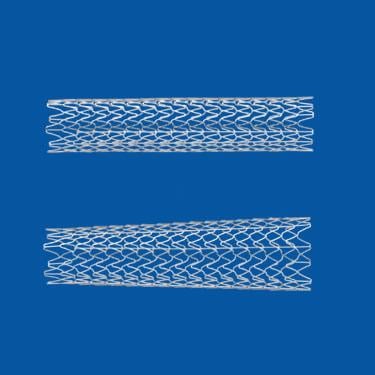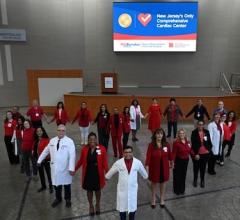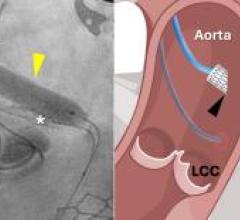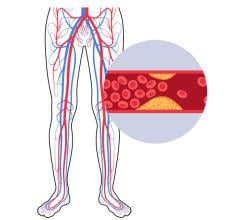
Stents, such as the RX ACCULINK Cardtid Stent System produced by Abbott, has similar safety and efficacy to surgery.
March 1, 2010 – Surgery and stenting to open blocked neck arteries proved similar in overall long-term safety and efficacy, but showed differences in stroke and heart attack in the weeks following the procedure, according to late-breaking science presented at the American Stroke Association's International Stroke Conference 2010.
The Carotid Revascularization Endarterectomy Versus Stenting Trial (CREST), funded by the National Institute of Neurological Disorders and Stroke, with supplemental funding by Abbott, is the largest randomized clinical trial comparing the surgical approach (carotid endarterectomy) to the carotid stenting to prevent stroke among patients with and without symptoms.
Surgeons have relied on endarterectomy for a half-century to open narrowed carotid arteries. Carotid stenting has been used for about 15 years.
"We found that the two procedures were similar with regard to the study's primary endpoint – overall incidence of stroke, heart attack and death," said Thomas G. Brott, M.D., lead author of the study and professor of neurology and director for research at the Mayo Clinic campus in Jacksonville, Fla. "We also found that the rates of these events were low, and that safety for patients with and without symptoms was as good as any reported in any randomized carotid intervention trial."
Initial findings from CREST came from a median follow-up of about two-and-a-half years. Some patients have been followed for up to a total of four years.
Dr. Brott and his colleagues found that in the 30-day period following the procedure, the rate for stroke was 2.3 percent in the surgical patients and 4.1 percent in the stenting group. However, the heart attack rate was higher in the surgical group, 2.3 percent, compared to 1.1 percent in the stenting group. The difference in heart attack and stroke between the two groups was statistically significant, Dr. Brott said.
The study also found that the age of the patient made a difference in outcome. At approximately age 69 and younger, stenting results were slightly better, with a larger benefit for stenting, the younger the age of the patient. Conversely, for patients older than 70, surgical results were slightly superior to stenting, with larger benefits for surgery, the older the age of the patient.
Younger patients had fewer events with an implanted stent, while older patients had fewer events with the surgical option, the researchers conclude.
CREST researchers enrolled two types of patients with a partial carotid blockage. Symptomatic participants had suffered a nondisabling stroke or a transient ischemic attack (TIA) within the previous six months. Asymptomatic patients had not had a stroke or TIA during the same time span.
Researchers randomized 2,502 patients – 35 percent were female and 9 percent minorities – to receive either endarterectomy or stenting at more than 100 North American hospitals. More than 80 percent of the participants had an artery blockage greater than 70 percent.
"It was not a healthy group with regard to risk for stroke, but we believe the group is very representative of patients with severe carotid artery disease," Dr. Brott said.
In addition, researchers found that symptomatic and asymptomatic patients, and males and females, had similar outcomes in the surgical and stenting groups.
"These were the lowest rates ever reported" in a randomized clinical trial comparing these procedures, Dr. Brott said.
CREST patients who suffered a heart attack reported a better quality of life after recovery than patients who suffered a stroke.
Advances in technology in opening clogged carotid arteries have occurred since the procedures began.
"For the present, stenting offers a reasonable alternative to carotid artery surgery," Dr. Brott said. "For younger patients, carotid stenting appears to be a very useful tool."
Coauthors of the study include Gary S. Roubin, M.D., Ph.D.; George Howard, Dr. Ph.; William Brooks, M.D.; Ariane Mackey, M.D.; L. Nelson Hopkins, M.D.; Alice J. Sheffet, Ph.D.; Virginia J. Howard, Ph.D.; Jenifer H. Voeks, Ph.D.; James F. Meschia, M.D.; Brajesh K. Lal, M.D.; Donald E. Cutlip, M.D.; and Wesley S. Moore, M.D.
For more information: www.strokeassociation.org


 February 06, 2026
February 06, 2026 









